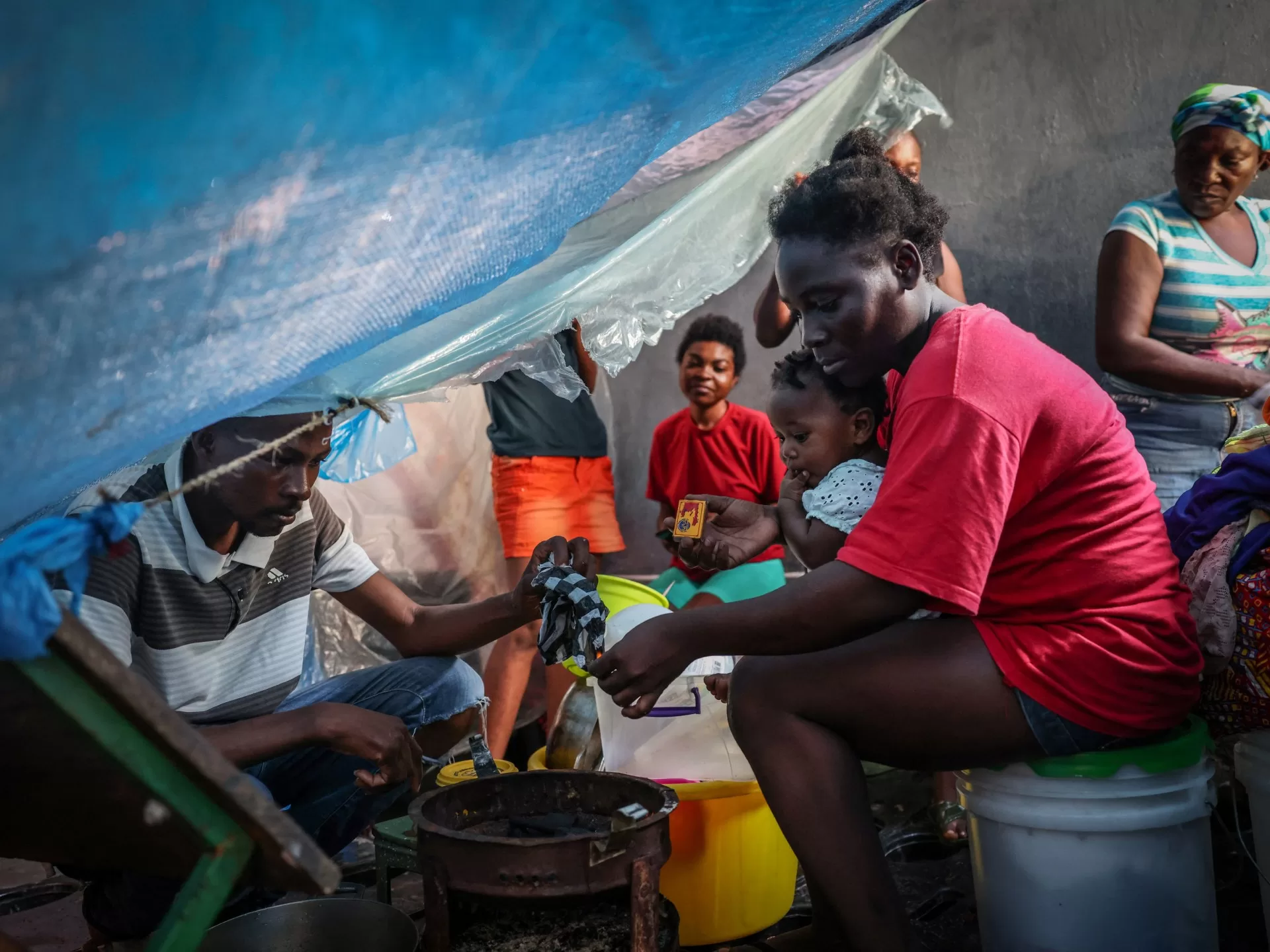Majorie Edoi sells food from a stand in Haiti’s capital, Port-au-Prince – or she used to until a conflict with armed gangs cut off the city from suppliers, paralysed trade routes and pushed the Caribbean country to its highest levels of hunger on record.
The 30-year-old mother of three now sells food out of one of the many makeshift camps for displaced people set up in schools across the city.
But with goods harder to come by, opportunities to provide for her children are shrinking fast.
“We can’t buy anything. We can’t eat. We can’t drink,” she said. “I’d like there to be a legitimate government to establish security so we can move around and sell goods, so the children can go to school.”
About five million people in Haiti, nearly half its population, are struggling to feed themselves due to the violence, according to the Integrated Food Security Phase Classification (IPC), an international benchmark used to assess hunger.
Since the 2021 assassination of Haiti’s last president, Jovenel Moise, armed gangs have expanded their power and influence, taking over most of the capital and expanding to nearby farmlands. Their land grabs have brought lootings, arson, mass rapes and indiscriminate killings.
In June, the first contingent of a long-delayed United Nations-backed force of mostly African police arrived in Haiti to bolster its underresourced security services, and Kenyan police began patrolling Port-au-Prince. Residents have responded with cautious optimism although it remains unclear when the majority of the force will arrive.
For mothers like Edoi and Mirriam Auge, 45, change cannot come fast enough.
Unable to work, the families depend on food rations and hygiene kits brought in by nongovernmental organisations, whose delivery drivers brave stray bullets along Port-au-Prince’s ever-changing battle lines.
“It’s tricky,” said Jean-Martin Bauer, the World Food Programme’s (WFP’s) director for Haiti. “There might be a shooting near one of the locations we distribute through, so you might have to cancel and leave people without a meal that day. These are the calls we need to make.”
The WFP has looked to shorten its supply chains, sourcing food such as sorghum and callaloo, a leafy green popular in the Caribbean, from nearby farms rather than risking longer transport by boat or truck via gang-controlled roads and shuttered ports.
Nonetheless, Bauer said, the WFP has not had enough food in stock to meet its distribution plan. He pointed to a 2024 United Nations-wide humanitarian fund for Haiti that is more than $500m below target.
The food crisis has been a long time coming to Haiti’s 11 million people.
In the 1980s, policies under a United States export programme followed by trade liberalisation encouraged by global lenders saw import tariffs slashed and US rice flood the market while local producers of the country’s staple were pushed out of their jobs.
Once a self-sufficient rice producer, the Western Hemisphere’s poorest country now imports 80 percent of its rice from the richest.
Today, farmers in the Artibonite, Haiti’s breadbasket, must contend with shootings, theft, racketeering and extortion by gangs, UN agencies said.
They have also reported that the tradeswomen known as Madan Sara, who traditionally bring fruit and vegetables from farms to markets across the country, are often kidnapped and raped.
For many children in Haiti, there are few options to obtain food. Desperation leads many to join gangs while girls end up trapped in prostitution.
“If you are displaced or your family doesn’t have a place to sleep, you may need to join armed groups just to cover your needs,” Save the Children Haiti food adviser Jules Roberto said.
Soaring food prices have also fuelled the crisis. Fresh fish on the island nation sold for 60 percent more in March than a year ago, according to Haiti’s IHSI statistics agency, while cooking oil and rice both soared 50 percent.
“We need to have a security response force but also a robust humanitarian response,” Bauer said. “Haiti will never be at peace as long as half its citizens are starving.”
